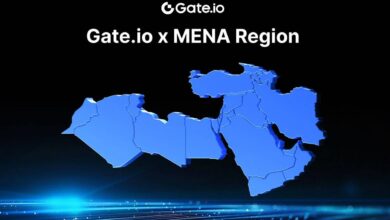UAE Emerges as AI Hub Amid U.S.-China Tech Race

As the competition between U.S. and Chinese tech giants heats up in the field of artificial intelligence (AI), Arab nations, particularly the UAE and Saudi Arabia, are positioning themselves to attract these companies and benefit from their advanced expertise in this critical sector.
The technology landscape is evolving rapidly, with global companies racing to develop the latest innovations in AI. These advancements include designing specialized chips, creating powerful supercomputers, and integrating AI-powered chatbots into various services.
Such efforts aim to enhance their competitive edge and unlock new business opportunities, according to a recent research paper from the Interregional Center for Strategic Analyses in Abu Dhabi.
Several factors are driving these companies to invest heavily in AI, with the immense potential for applying this technology to a wide range of products and services standing out as a key motivator.
Global tech giants like Alphabet, Amazon, Apple, Meta, and Microsoft are pouring hundreds of billions of dollars into AI development in 2024 alone, as highlighted in a report by The Economist. Their investments are driven by the desire to maintain technological leadership and outpace competitors, as well as the fear of losing market share if they fall behind in the AI race.
According to Goldman Sachs, AI investments are expected to grow substantially, reaching $200 billion by 2025. Meanwhile, Bloomberg projects the generative AI market to soar to $1.3 trillion by 2032. This explosive growth is prompting tech leaders such as Google and Microsoft to make significant investments, while the industry is witnessing a surge in mergers and acquisitions, as major players seek to acquire cutting-edge technologies and skilled talent.
Google and Microsoft, in particular, are making concerted efforts to strengthen their positions in AI. Google is focused on expanding its AI chatbot services, such as Bard and LaMDA, while enhancing the performance of its Chrome browser through AI integration. Microsoft, on the other hand, has invested billions in OpenAI to advance AI research and incorporate it into its diverse product offerings.
However, the Interregional Center has cautioned that these tech giants face a substantial challenge known as the “innovation dilemma.” Established companies like Google, which are confronted by emerging applications such as ChatGPT, risk losing their dominant position if they fail to continuously innovate and push the boundaries of AI development. This opens the door for startups and smaller firms to introduce innovative solutions that could disrupt the market and challenge the dominance of industry leaders.
The UAE and AI: Upward and Forward
On another note, the UAE has emerged as an attractive hub for AI growth due to its strategic location, business-friendly environment, and forward-thinking regulatory framework. The country’s commitment to technological innovation is exemplified by initiatives like the UAE National AI Strategy 2031, which aims to position the UAE as a global leader in AI by investing in education, research, and infrastructure.
Moreover, the government offers favorable policies, including tax incentives and streamlined processes for business setup, which have attracted leading technology firms to the region. Additionally, the UAE’s emphasis on public-private partnerships and its growing network of tech hubs, such as the Dubai International Financial Centre (DIFC), create an ideal ecosystem for AI companies to thrive and innovate.
UAE and AI Regulation
The UAE has also introduced several AI-related regulations and frameworks to ensure the responsible development and deployment of artificial intelligence technologies. These regulations are part of the country’s broader strategy to become a global leader in AI while addressing potential risks such as data privacy, ethical concerns, and accountability.
One of the key initiatives is the UAE National AI Strategy 2031, which outlines a comprehensive framework for AI governance. The strategy aims to ensure that AI applications are aligned with national values, ethical standards, and international best practices. In addition, the UAE has established the Ministry of Artificial Intelligence, which plays a central role in shaping AI policies and regulations.
The UAE has also developed guidelines and regulatory frameworks for data protection, including the Personal Data Protection Law (PDPL), which safeguards the use of data in AI applications. Moreover, the Dubai International Financial Centre (DIFC) has its own data protection laws that align with international standards, offering a secure environment for AI and other emerging technologies.
This combination of factors is driving global companies to migrate to the UAE, seeking to tap into its potential as a leader in the future of artificial intelligence.
With AI reshaping the global technology landscape, the UAE and Saudi Arabia are pushing themselves to become key players by creating favorable environments for investment and innovation, attracting the world’s top tech firms to the region.





